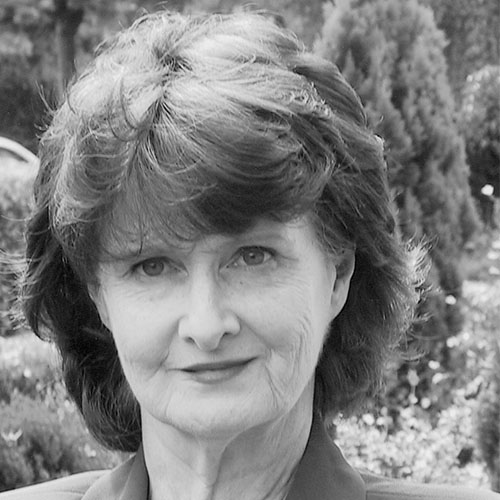Visiting Poets
Eavan Boland
Hailed by critics as “Ireland’s premier woman poet,” Eavan Boland is the author of twelve volumes of poetry, including The Lost Land (W.W. Norton, 1998), An Origin Like Water: Collected Poems 1967-1987 (1996), and In A Time Of Violence (1994).
In addition to her poetry, she has also written a volume of prose entitled Object Lessons: The Life Of The Woman And The Poet In Our Time (1995), and was co-editor of The Making Of A Poem: A Norton Anthology Of Poetic Forms (2000), with Mark Shad. Her poems and essays have appeared in publications such as The New Yorker, the Atlantic, Ploughshares, the Paris Review, and the American Poetry Review.
Boland was born in Dublin, Ireland in 1944, and graduated from Trinity College in 1966. She has taught at Trinity College, University College, Bowdoin College, and was a member of the International Writing Program at the University of Iowa. She is on the board of the Irish Arts Council and a member of the Irish Academy of Letters, and is a member of the English Department at Stanford University.
Select Poems
-and not simply by the fact that this shading of
forest cannot show the fragrance of balsam,
the gloom of cypresses,
is what I wish to prove.
When you and I were first in love we drove
to the borders of Connacht
and entered a wood there.
Look down you said: this was once a famine road.
I looked down at ivy and the scutch grass
rough-cast stone had
disappeared into as you told me
in the second winter of their ordeal, in
1847, when the crop had failed twice,
Relief Committees gave
the starving Irish such roads to build.
Where they died, there the road ended
and ends still and when I take down
the map of this island, it is never so
I can say here is
the masterful, the apt rendering of
the spherical as flat, nor
an ingenious design which persuades a curve
into a plane,
but to tell myself again that
the line which says woodland and cries hunger
and gives out among sweet pine and cypress,
and finds no horizon
will not be there.
From IN A TIME OF VIOLENCE (W.W. Norton & Company, 1994)
In the evening
after a whole day at the easel
my mother would put down her brush,
pour turpentine into a glass jar,
and walk to the table.
Then she took a mirror,
hand-sized, enameled in green,
and turned her back to the canvas.
And stood there.
And looked in it.
It was dusk.
The sheets were ghostly.
The canvas was almost not there.
In the end all I could see was her hand
closed around the handle.
All I can see now
is her hand, her head.
Her back is turned to what she made.
The mirror shows her
whit is over her shoulder:
a room in winter.
A window with fog outside it.
A painting she sees in not finished.
A child. Her face round with impatience,
who will return,
who has returned,
who only knows no that she has seen the rare and necessary –
usually unobservable-
last discipline.
From THE LOST LAND (W.W. Norton & Company, 1998)
A city of fog and strange consonants,
I read it first and at first I was
An exiled child in the crackling dusk of
The underworld, the stars blighted. Later
I walked out in a summer twilight
Searching for my daughter at bedtime.
When she came running I was ready
To make any bargain to keep her.
I carried her back whitebeams
And wasps and honey-scented buddleias.
But I was Ceres then and I knew
Winter was in store for every leaf
On every tree on that road.
Was inescapable for each one we passed.
And for me.
It is winter
And the stars are hidden.
I climb the stairs and stand where I can see
My child asleep beside her teen magazines,
Her can of Coke her plate of uncut fruit.
The pomegranate! How did I forget it?
She could have come home and been safe
And ended the story and all
Our heartbroken searching but she reached
Out a hand and plucked a pomegranate.
She put out her hand and pulled down
The French sound for apple and
The noise of stone and the proof
That even in the place of death,
At the heart of legend, in the midst
Of rocks full of unshed tears
Ready to be diamonds by the time
The story was told, a child can be
Hungry. I could warn her. There is still a chance.
The rain is cold. The road is flint-coloured.
The suburb has cars and cable television.
The veiled stars are above ground.
It is another world. But what else
Can a mother give her daughter but such
Beautiful rifts in time?
If I defer to grief I will diminish the gift.
The legend must be hers as well as mine.
She will enter it. As I have.
She will wake up. She will hold
The papery flushed skin in her hand.
And to her lips. I will say nothing.
From IN A TIME OF VIOLENCE (W.W. Norton & Company, 1994)
Poetry Center Reading
Fall 1997Spring 2012

